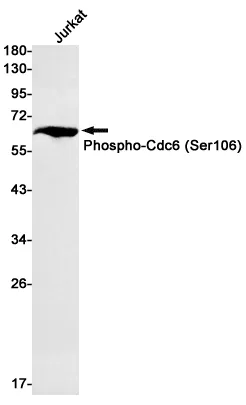Summary
Performance
Immunogen
Application
Background
Cell localization:Nucleus. Chromosome. Cytoplasm. Note=Mainly localizes to nucleus: colocalizes with PCNA on replication sites...The protein encoded by this gene is cell-cycle regulated, and has nuclear localization. The C-terminal half of the protein shares homology with trypsin-like peptidases and it contains a PCNA-interacting peptide (PIP) box, that is necessary for its co-localization with proliferating cell nuclear antigen (PCNA). Reduced expression of this gene resulted in DNA replication defects, consistent with the demonstrated role for this gene in Simian Virus 40 (SV40) viral replication. Mutations in this gene have been associated with Kenny-Caffey syndrome (KCS) type 2 and the more severe osteocraniostenosis (OCS, also known as Gracile Bone Dysplasia), both characterized by short stature, hypoparathyroidism, bone development abnormalities, and hypocalcemia. Alternative splicing results in multiple transcript variants. [provided by RefSeq, Aug 2015],
Research Area




